A warm greeting to all my friends at Hive, especially those who love culture. I am very happy to be here again, sharing another of the beautiful things that happen in the small communities of my country. As on other occasions, I want to tell you about a new encounter on the literary route, this time with another wonderful story from the Jivi indigenous group. It is called **La mujer chicharra** (The Cicada Woman) and, like **Kaliebirri Nae Kudeido**, the story we have shared in many other encounters on the literary route, it was also told by Luis Blanco.
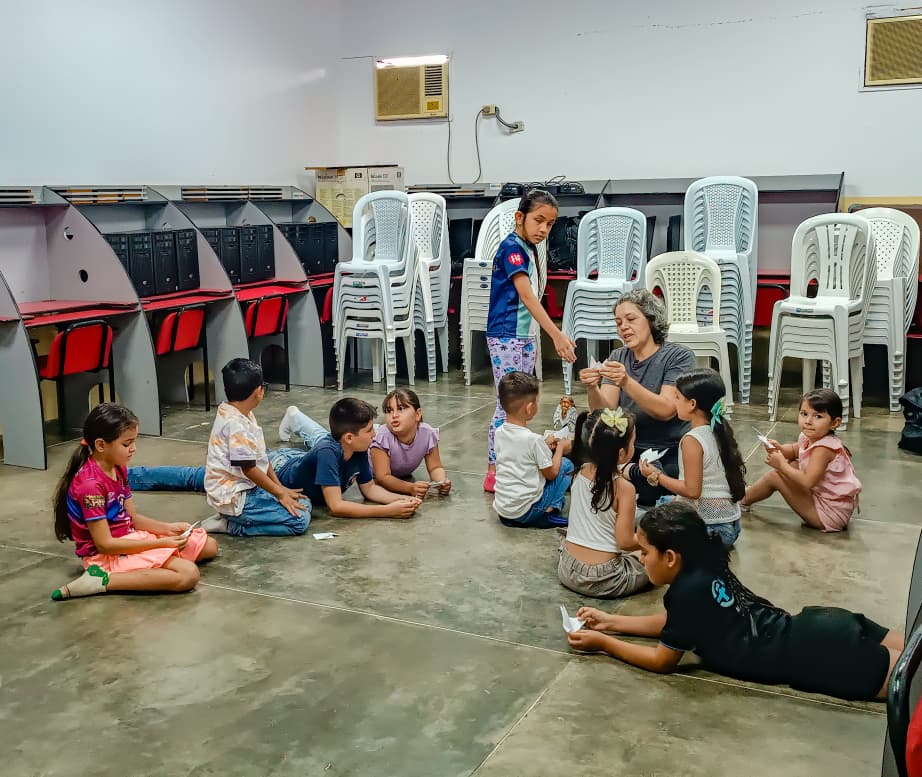
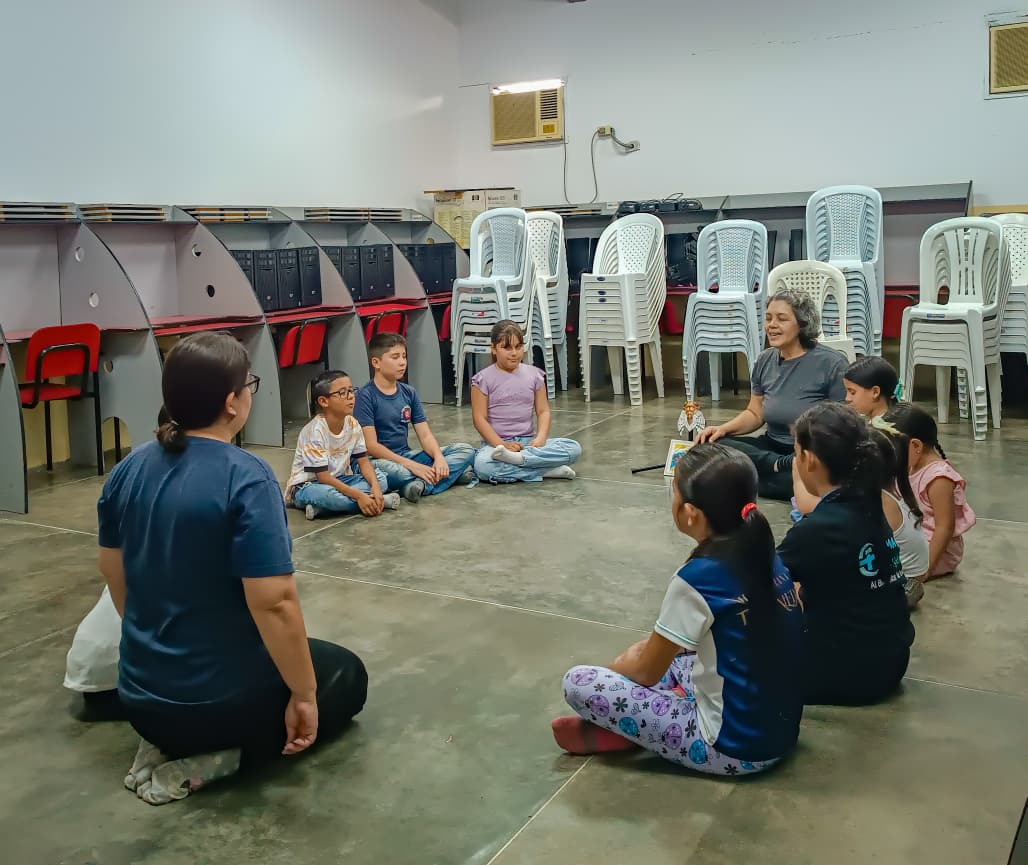
I have always loved this story because, when talking about cicadas, it occupies a very important place in the cultures of the peoples of our country, who, despite being directly part of the Jivi culture, preserve the wonderful heritage of our indigenous peoples, particularly everything related to the deep connection with nature and the tasks of life in the countryside. And cicadas play a very important role in this ancestral worldview. For the Jivi people, cicadas sing to announce the approach of the rains. This belief is also one of the things that is taught from childhood, especially in the plains region, specifically in the small communities of the neighboring states of Bolívar, Apure, and those that share a border with the state of Táchira.
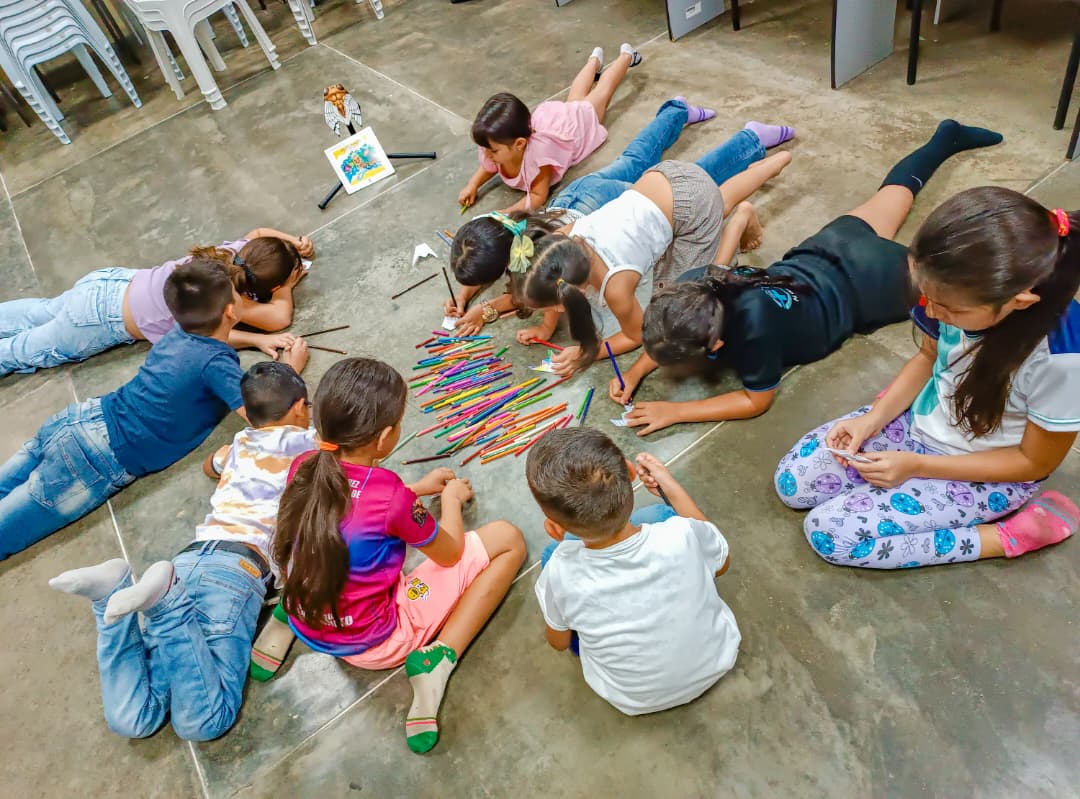
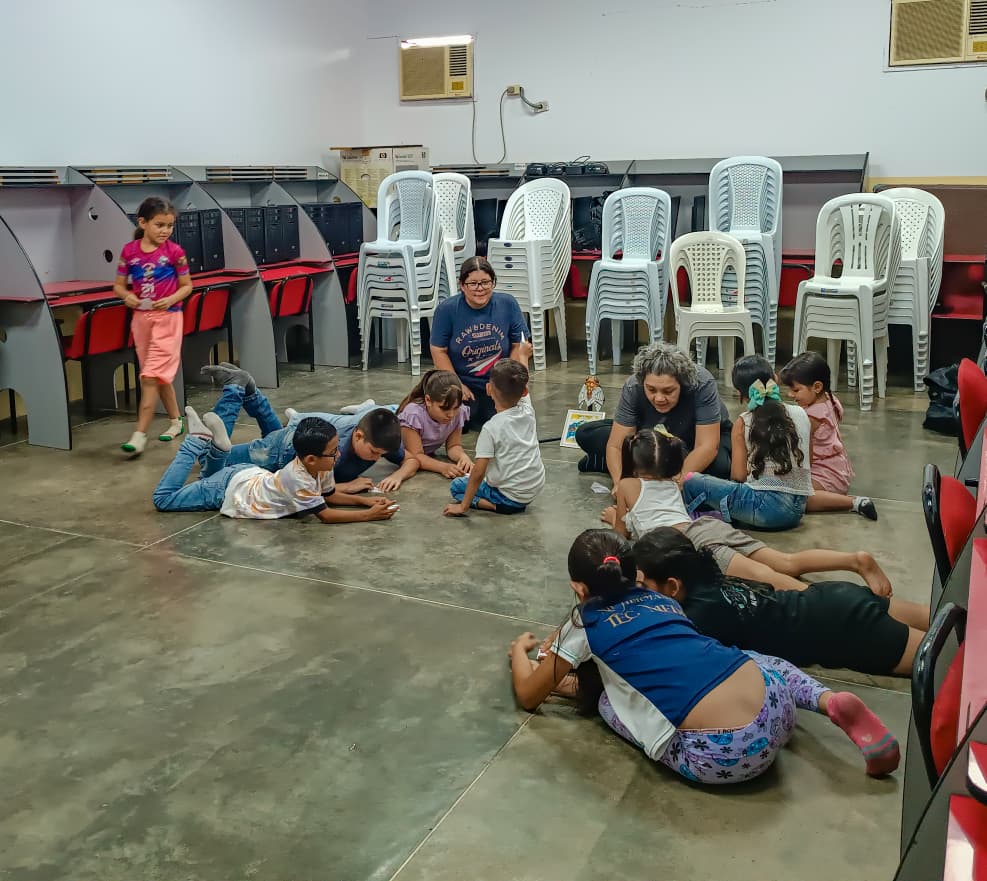
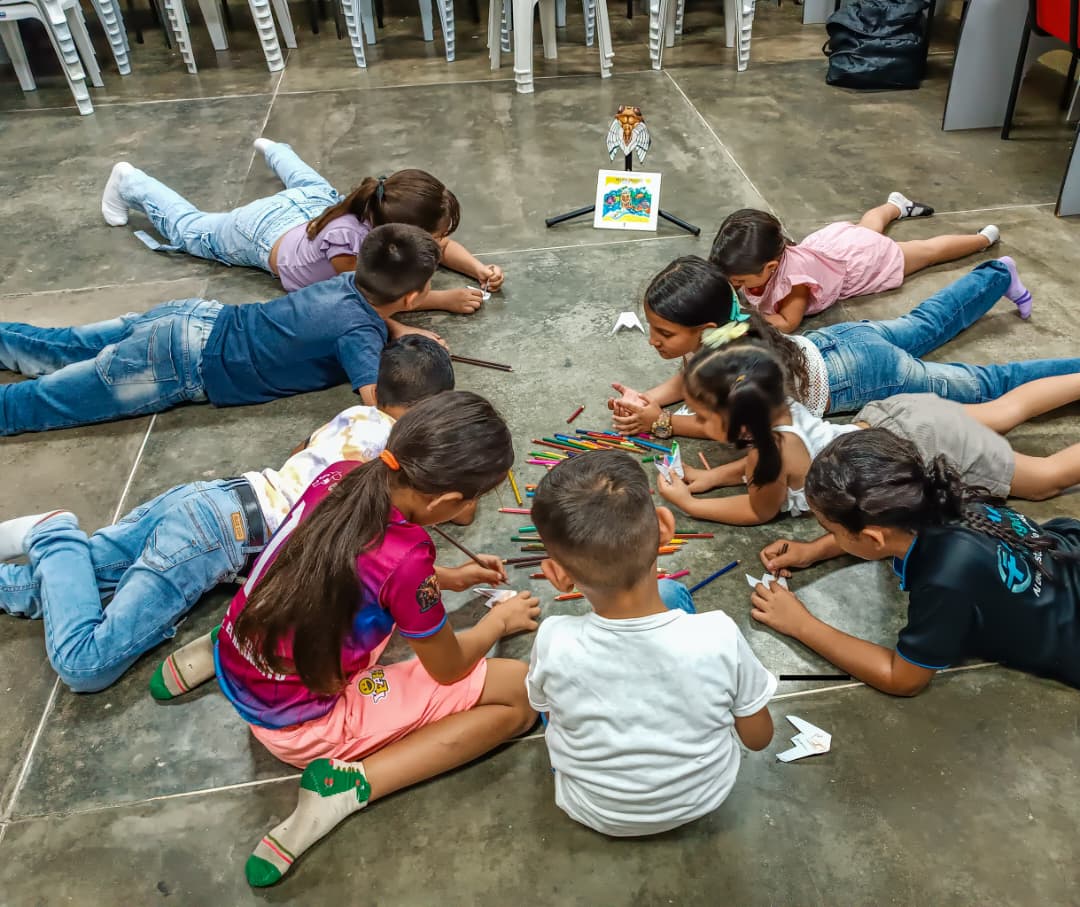
From generation to generation, all children and elders know that when cicadas sing, it is because the rains are coming. According to our ancestral heritage, cicadas bring water. And the book of the cicada woman clarifies any doubts we may have about this wonderful mythology. According to the Jivis, a family in their village was preparing cassava and the fire to make cassava bread. The father was in charge of the stove, while the mother and daughter drained and crushed the cassava. The young woman decides to leave her mother working alone so she can go to the farm to pick fruit and other food from the fields, but she forgets to bring water. She decides not to return, thinking that her stay in the garden will not take long, but once there, she becomes distracted by the noble task of gathering and when she realizes it, she is very thirsty. She then begins to cry out desperately for water, so much so that her parents hear her and come to her aid. But when they arrive, it is too late. They find her transformed into a giant insect, which, noticing their resemblance, flies away. This is the story of our peoples, and it is still part of the popular imagination of rural communities. When the cicadas sing, it is because they are asking for water, and we all prepare to wait for the rains.
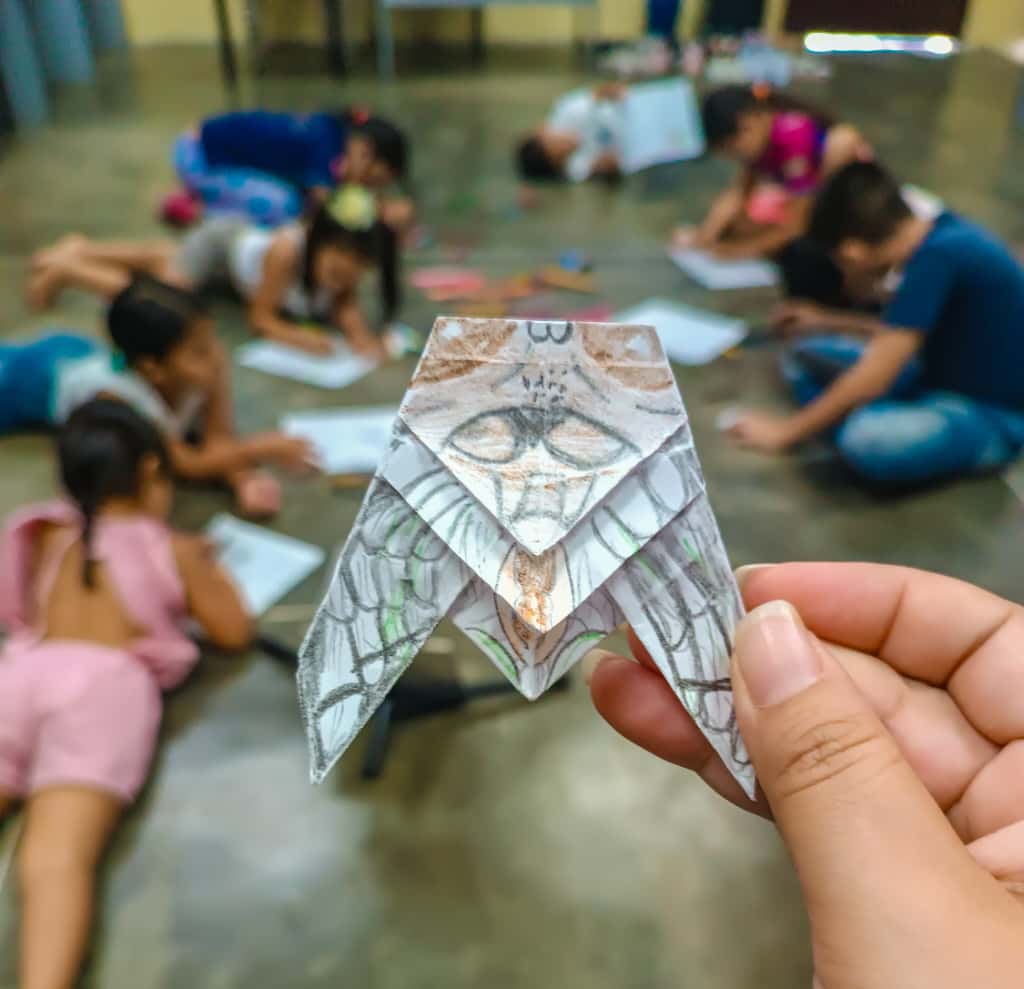
This incredible story was the inspiration for this new literary route event. With a group of wonderful children who are passionate about stories, fairy tales, books, and the beauty of learning. In addition to sharing these stories through interactive reading, we also shared reflections, made origami butterflies, painted, and created. But above all, we shared friendship and unity, like a true learning community.
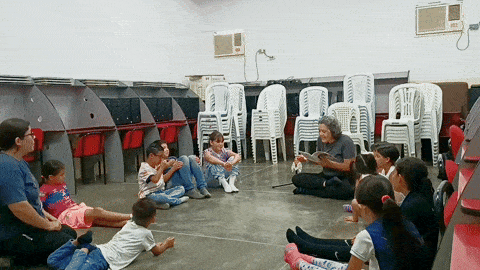
It is always a pleasure to tell you more about everything that the wonderful art of literature has to offer, especially when it comes to these stories that belong to an ancestral heritage. The culture of our indigenous peoples has fiercely resisted all attacks by Creoles and invaders, and the Jivi people, as we like to say, are one of those who still live, exist, and resist within the national territory. Sharing their stories is a way of honoring them.
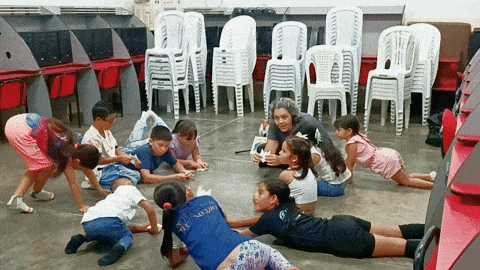
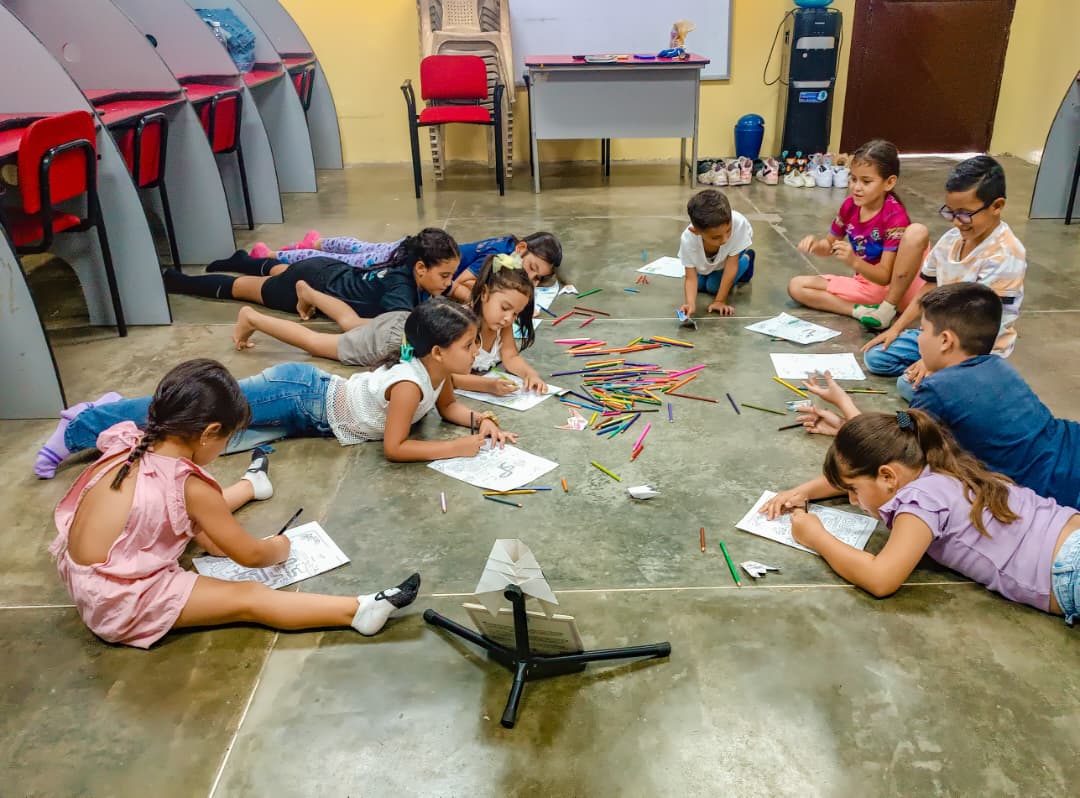
I bid you farewell for now with a warm hug, and I hope to be back very soon to tell you about a new cultural event. Until then.
Original content by the author. Resources: Xiaomi redmi note 11s Own photos Translated with Deepl.com All rights reserved || @jetta.amaya// 2025
**La mujer Chicharra, en un nuevo encuentro de La Ruta Literaria (Ingles/Español)**
Un saludo amoroso para todos mis amigos de Hive, especialmente para los amantes de la cultura. Me da mucho gusto estar nuevamente por aquí, compartiendo otra de las hermosas cosas que ocurren en la pequeñas comunidades de mi país. Como en otras ocasión les quiero habla de un nuevo encuentro de la ruta literaria, esta vez con otra maravillosa historia del grupo originario Jivi. Se trata de **La mujer chicharra** que al igual que el **Kaliebirri Nae Kudeido**, la historia que hemos compartido en muchos otros encuentros de la ruta literaria, también fue relatada por Luis Blanco.


Esta historia siempre me ha encantado, porque al hablar de las chicharras, se ubica en un lugar muy importante para las culturas de los pueblos de nuestro país, que a pesar de formar parte directamente de la cultura Jivi, conservan la herencia maravillosa de nuestros aborígenes, en particular todo lo relacionado con la profunda conexión con la naturaleza y los quehaceres de la vida en el campo. Y las chicharras juegan un papel muy importante en toda esta cosmovisión ancestral. Ya que para el pueblo Jivi las chicharras son quienes cantan para anunciar la proximidad de las lluvias. Y esta creencia también es una de las cosas que que se enseñan desde las infancias, especialmente en la región llanera, específicamente en las pequeñas comunidades de los estados vecinos Bolívar, Apure y las que comparten frontera en el estado Táchira.



Pues de generación en generación, todos los niños y los viejos saben, que cuando las chicharras cantan, es porque se aproximan las lluvias. Ya que según nuestra herencia ancestral, las chicharras poden agua. Y el libro de la mujer chicharra, nos aclara cualquier duda acerca de esta maravillosa mitología. Según los Jivis una familia de su pueblo preparaba la yuca y el fuego para preparar casabe. El padre era el encargado del fogón, mientras que la madre y la hija escurrían y trituraban la yuca. La joven decide dejar a su madre trabajando sola para ella ir al conuco a recoger frutas y otros alimentos del sembradío, pero olvida llevar agua. Decide no regresar ya que piensa que no le tomara tanto tiempo su estancia en el conuco, pero estando allá se distrae en la noble tarea de la recolección y cuando se da cuenta, tiene mucha sed. Empieza entonces a pedir agua a gritos desesperados, tanto que sus padres logran escucharla y acuden a ayudarla. Pero cuando llegan ya es demasiado tarde, la encuentras convertida en un insecto gigante, que al notar su parecencia escapa volando. Así es como es historia de nuestros pueblos y todavía esa historia forma parte del imaginario popular de las comunidades del campo. Cuando las chicarras cantan, es porque están pidiendo agua y todos nos preparamos para esperar las lluvias.

Con esta increíble historia se desarrollo este nuevo encuentro de la ruta literaria. Con un grupo de niños y de niñas maravillosos, apasionados por las historias, los cientos, los libros y la belleza de aprender. ademas de compartir esta historias con una lectura interactiva, también compartimos reflexiones, realizamos una chicharra de origami, pintamos y creamos. Pero sobre todo compartimos en amistad y unión, como una autentica comunidad de aprendizaje.

Siempre es un placer contarles mas sobre todo lo que nos brinda el maravilloso arte de la literatura, sobre todo cuando se tratan de estas historias que pertenecen a una herencia ancestral. La cultura de nuestros pueblos indígenas ha resistido ferozmente todos los ataques de criollos e invasores y el pueblo Jivi, como nos gusta decir, es uno de los que aun viven, existen y resisten en el territorio nacional. Divulgar sus historias es una forma de honrarles.


Me despido por ahora dejandoles un fuerte abrazo, espero estar por aquí muy pronto hablándoles de un nuevo encuentro cultural. Hasta entonces.
Contenido original del autor. Recursos: Xiaomi redmi note 11s Fotos propias Traducido con Deepl.com Todos los derechos reservados || @jetta.amaya// 2025